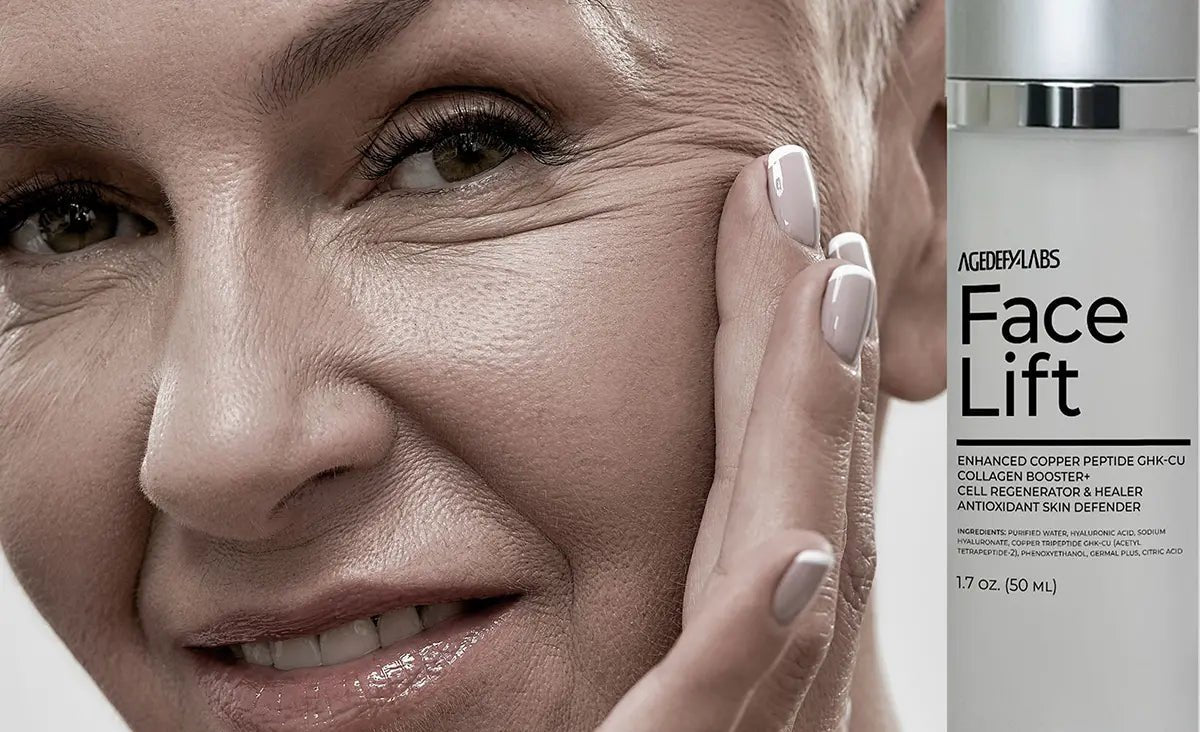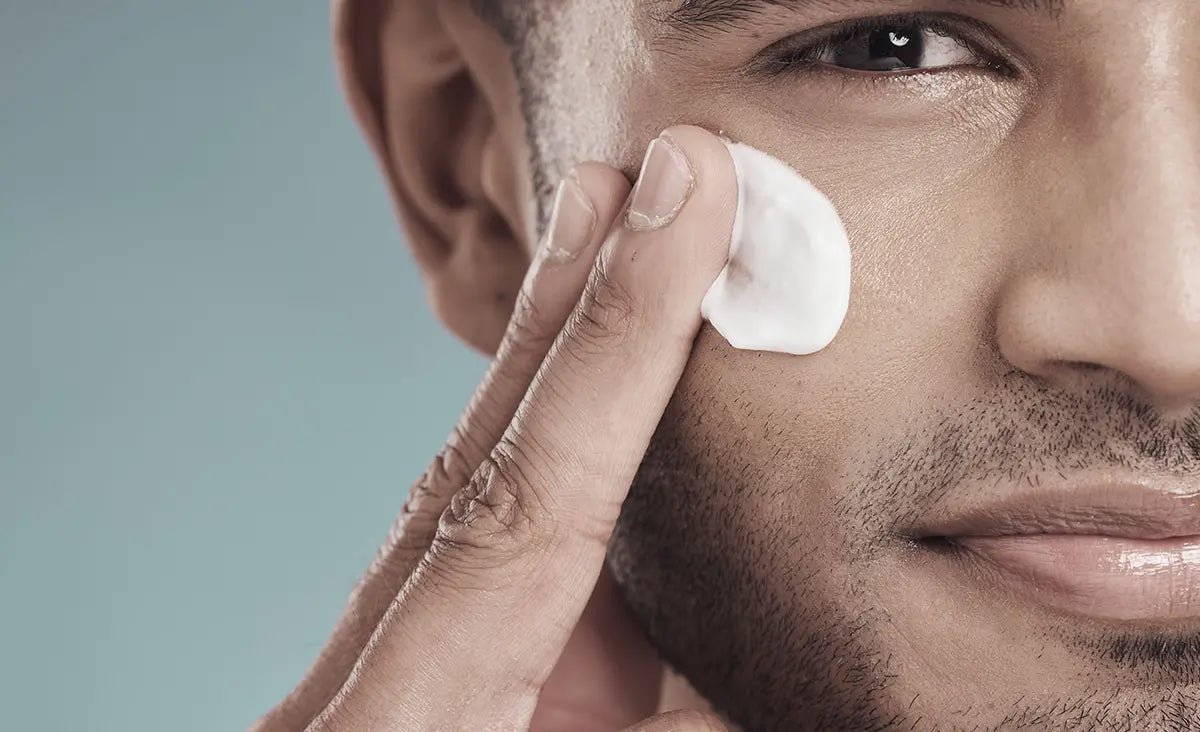In the world of anti-aging skincare, peptides and retinoids are two of the most popular ingredients, each praised for their ability to reduce wrinkles, boost skin firmness, and improve overall skin texture. While both are effective, they work in very different ways and can cater to various skincare needs. Let’s dive into the mechanisms, benefits, potential side effects, and who might benefit the most from each ingredient.
The Basics: How Do Peptides and Retinoids Work?
• Peptides: Peptides are short chains of amino acids that form the building blocks of proteins like collagen and elastin, which are crucial for maintaining skin’s structure and elasticity. When applied topically, peptides can signal the skin to produce more collagen, helping to reduce the appearance of fine lines and improve firmness over time. Peptides are gentle and generally well-tolerated, making them suitable for all skin types, including sensitive skin.
• Retinoids: Retinoids are derived from Vitamin A and are known for their ability to speed up cell turnover, encourage collagen production, and exfoliate the skin. By promoting new cell growth and shedding dead skin cells, retinoids can effectively reduce fine lines, even out skin tone, and improve skin texture. They are among the most scientifically backed ingredients for anti-aging but can be more intense, with potential side effects like dryness, redness, and peeling, especially when first introduced.
Key Benefits of Peptides in Anti-Aging Skincare
Peptides provide several benefits for aging skin without causing irritation:
• Collagen Stimulation: Peptides are known to help stimulate collagen production, which naturally decreases as we age, leading to wrinkles and sagging skin.
• Skin Barrier Support: Peptides can strengthen the skin barrier, helping to retain moisture and improve overall skin resilience.
• Reduced Inflammation: Some peptides have anti-inflammatory properties, which can help calm and soothe irritated skin. This makes them ideal for those with sensitive skin or conditions like rosacea.
Key Benefits of Retinoids in Anti-Aging Skincare
Retinoids offer a broader range of anti-aging benefits, making them particularly effective for significant skin concerns:
• Accelerated Cell Turnover: Retinoids promote faster cell turnover, which helps fade dark spots, smooth fine lines, and reduce acne.
• Deep Penetration: Retinoids work at a deeper level in the skin, which can provide more dramatic improvements in skin texture and tone compared to peptides.
• Comprehensive Anti-Aging: Because they work on multiple layers of the skin, retinoids can address a variety of aging signs at once, including wrinkles, hyperpigmentation, and rough texture.
Potential Side Effects: Peptides vs. Retinoids
While peptides are generally safe and cause minimal irritation, retinoids are known for their potential side effects, particularly during the initial stages of use:
• Peptides: Rarely cause irritation and can be safely used by almost all skin types. They are gentle enough for daily use and can be layered with other active ingredients.
• Retinoids: Can cause dryness, peeling, redness, and increased sensitivity to the sun, especially when first introduced. It’s usually recommended to start with a lower concentration and gradually increase usage to build tolerance.
Choosing Between Peptides and Retinoids
So, which one is right for you? The choice between peptides and retinoids largely depends on your skin type, specific concerns, and tolerance for more potent ingredients:
• Best for Sensitive Skin: If you have sensitive skin or are new to anti-aging products, peptides are a gentle yet effective option that can improve firmness and hydration without irritation.
• Best for Significant Aging Concerns: For individuals dealing with deeper wrinkles, dark spots, or uneven skin texture, retinoids may be the better choice due to their comprehensive anti-aging benefits.
• Best for Hydration and Barrier Support: Peptides are particularly beneficial for those looking to enhance hydration and support the skin barrier, which is essential for healthy, resilient skin.
Combining Peptides and Retinoids
You don’t have to choose between peptides and retinoids; in fact, they can complement each other beautifully in a skincare routine. Peptides provide hydration and support for the skin’s barrier, which can help reduce irritation that sometimes comes with retinoid use. For example, you can apply retinoids at night to take advantage of their cell turnover benefits while using a peptide serum or moisturizer during the day for hydration and collagen support.
If you’re looking for a single product that combines these ingredients, AgeDefy Labs offers the EyeRevive Peptide Serum, which includes both peptides and retinol. This serum is designed specifically to target the delicate eye area, combining the anti-aging benefits of peptides with the powerful effects of retinol. EyeRevive Peptide Serum provides a comprehensive approach to reducing the appearance of fine lines, wrinkles, and dark circles, making it an excellent choice for those who want to maximize results with minimal steps in their routine.
By using products like EyeRevive Peptide Serum, you can benefit from the rejuvenating effects of both peptides and retinol, ensuring that your skin remains hydrated, firm, and youthful-looking over time.
Conclusion
Both peptides and retinoids are powerful anti-aging ingredients, but they cater to different skin needs. Peptides offer a gentler approach with benefits for hydration and collagen support, while retinoids provide deeper anti-aging results with a more intensive process. If you’re unsure which to choose, consider incorporating both into your routine or consulting with a dermatologist to tailor a regimen that addresses your unique skin concerns.
Read more

The peptide GHK-Cu (Copper Tripeptide-1) has been making waves in the world of skincare and hair care due to its regenerative properties. Originally discovered in the 1970s by Dr. Loren Pickart, GH...

Skincare is often marketed towards women, but men’s skin can benefit just as much from anti-aging products. Recently, peptides have become a popular ingredient for their ability to promote collagen...



Leave a comment
This site is protected by hCaptcha and the hCaptcha Privacy Policy and Terms of Service apply.